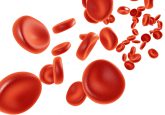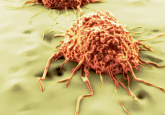New sensitive and selective ELISA technique developed to monitor bevacizumab

Research published in Current Analytical Chemistry describes a new ELISA technique, with a high sensitivity and selectivity for bevacizumab (BEV), as a time and cost effective method for monitoring BEV levels in blood plasma.
The monoclonal antibody, BEV, targets the vascular endothelial growth factor protein and is important in the treatment of non-small-cell lung cancer.
Researchers from King Saud University (Riyadh, Saudi Arabia) developed the ELISA to determine the concentration of BEV in plasma samples for therapeutic drug monitoring as well as inter individual differences in clinical response.
The new method was demonstrated to be suitable for use in a clinical setting due to the high selectivity of the ELISA for BEV. The technique also eliminates the need for the pre-treatment of plasma samples, therefore increasing the number of samples which can be analyzed simultaneously and the simplicity of reading the assay.
The research team hopes the developed ELISA will continue to be utilized for studying the pharmacokinetics, pharmacodynamics and therapeutic drug monitoring of BEV, as well as assessing the expected bioavailability of similar compounds.
Sources: Darwish IA, Al-Shehri MM, El-Gendy MA. Development of new ELISA with high sensitivity and selectivity for bioanalysis of bevacizumab: a monoclonal antibody used for cancer immunotherapy. Curr. Anal. Chem. doi:10.2174/1573411014666180122163030 (2018) (Epub ahead of print); www.eurekaselect.com/159273





